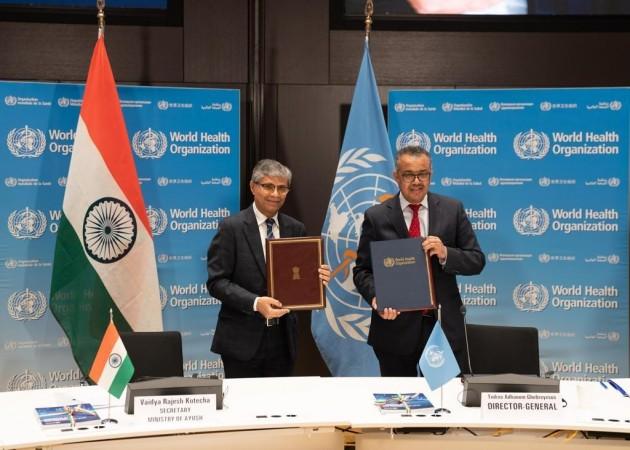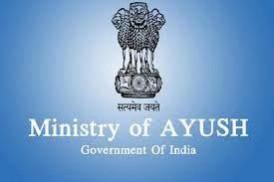The Ministry of Ayush has inked a deal with the World Health Organization to build the WHO Global Centre for Traditional Medicine in India, which would be based in Jamnagar, Gujarat. The Institute of Training and Research in Ayurveda in Gujarat will serve as the organization's interim headquarters.
The Indian government has invested USD 250 million in the global knowledge centre for traditional medicine, with the goal of harnessing the potential of traditional medicine from around the world through contemporary science and technology to improve people's and the planet's health.

Ayush Minister Sarbanand Sonowal said that his Ministry was able to get this due to the initiative and efforts of our illustrious Prime Minister Narendra Modi. He added that the Centre will bring far-reaching benefits to traditional medicine systems around the world. He informed that the Centre will bring the availability of a better system to connect with the latest scientific methods.
Highlighting the importance of the Indian government's initiative, Dr Tedros Ghebreyesus said that harnessing the potential of traditional medicine by drawing on modern science and the principles of equity and sustainability will be a game-changer for health in the 21st century.

India is honoured to host the World Health Organization's Global Centre for Traditional Medicine, Prime Minister Narendra Modi said. In the tweet, Modi wrote, "This Centre will contribute towards making a healthier planet and leveraging our rich traditional practices for global good."
India is honoured to be home to a state-of-the-art @WHO Global Centre for Traditional Medicine. This Centre will contribute towards making a healthier planet and leveraging our rich traditional practices for global good. He further added in a fresh Tweet, "Traditional medicines and wellness practices from India are very popular globally. This @WHO Centre will go a long way in enhancing wellness in our society."
WHO and Ayush Ministry
The primary goal of this centre, according to the Ministry of Ayush, will be to harness the potential of traditional medicine from around the world using modern science and technology in order to improve the overall health of communities around the world.
Traditional medicine is used by roughly 80% of the world's population, according to the WHO. Tedros Adhanom Ghebreyesus, WHO Director-General said, "Ensuring all people have access to safe and effective treatment is an essential part of WHO's mission, and this new centre will help to harness the power of science to strengthen the evidence base for traditional medicine. I'm grateful to the Government of India for its support, and we look forward to making it a success."
The WHO-GCTM is designed to engage and benefit all the regions of the world.















